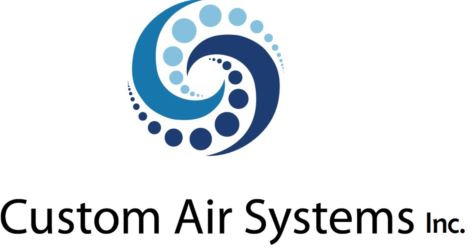
If you want a fulfilling, successful career, check out a career in heating, ventilation and air conditioning. HVAC is one of the fastest-growing careers you can find, according to the U.S. Bureau of Labor Statistics, which predicts careers in this industry will grow by 13 percent by 2028.
It's easy to see why these careers are increasingly popular. One is homeowners taking advantage of government incentives to upgrade to more energy-efficient comfort systems. It's also important to consider R-22 Freon® coolant, which affects old models. Finally, there’s the red-hot real estate market and a property shortage that’s increased the availability of new construction homes.
One of the most in-demand careers is working as an HVAC technician. Find out about what they do, how to become one and about how much you can expect to make.
What Does It Mean to Be an HVAC Technician?
A HVAC technician possesses the knowledge and skills to service heating and cooling systems. Most work with both homeowners and business owners. And, most importantly, you’ll learn a great deal about:
- Air conditioners
- Furnaces
- Mini-splits and heat pumps
- Thermostats and home zoning
- Indoor air quality products such as air filters and air purification systems
Some are HVAC-R technicians, and they are further trained to provide refrigeration.
Is There a Shortage of HVAC Technicians?
There is a high demand for qualified HVAC technicians because of shrinking labor force within the industry. This shortage is because of several things, including an aging workforce and competition from other industries. There are also more young people seeking college degrees instead of a licensed trade like HVAC.
Is HVAC a Hard Career?
While HVAC can be physically demanding, it can still be quite gratifying. As a technician you'll be expected to occasionally:
- Work in awkward settings, such as tight or dusty spaces.
- Work in high or low temperatures since equipment is often outdoors.
- Work evenings, weekends and overtime around peak demand.
One of the biggest misconceptions about HVAC is that it’s a blue-collar career. It requires a specific skill set, specialized education and continuous recertification.
It’s an excellent first career if you prefer to:
- Minimize student debt.
- Work outdoors instead of in an office.
- Have job security knowing your position can’t be outsourced.
- Gain the experience you need to start your own successful business.
Is HVAC a Demanding Job?
Every job has sources of stress. HVAC technicians service complex equipment and will occasionally have to endure cramped or uncomfortable working conditions. The proper experience and tools can help mitigate some of these concerns. In addition, paid training and a stable workload help both installers and technicians avoid some of the most common triggers of work-related stress.
Is HVAC Hard on Your Body?
Lifting heavy objects and performing repetitive motions are a couple of ways the HVAC industry can be physically demanding. Accessing and servicing large equipment can be strenuous. HVAC work can be very physical, and you may benefit from a healthy diet and exercise regimen to stay in good shape.
Are HVAC Careers at Risk Because of a Recession?
While a recession can affect any industry, HVAC is particularly resilient due to the sheer popularity of heating and cooling equipment. Repairs and installation will always be required, which means apprentices and master technicians alike can often find work in many different cities.
Is HVAC a Good Career for the Future?
As HVAC systems continue to advance, technicians and installers will become even more important. New forms of heating and cooling systems consume less energy or produce it from renewable sources like solar and wind. Greener HVAC equipment will continue to expand, as will the need for competent HVAC professionals.
How to Become an HVAC Technician
To start a career as an HVAC technician, you’ll need a high school diploma or GED along with specialized training. Other, more specialized (and higher paying) HVAC careers typically need additional education or certifications.
You can secure the needed certifications by taking classes at a community college or trade school. How long it takes to become an HVAC technician may fluctuate depending on the specific program, which generally lasts between six months to two years. Your employer might also require NATE certification. An acronym for North American Technician Excellence, this influential accreditation further develops your technical knowledge to help you better serve customers.
Even though basic concepts of an HVAC career could be learned on your own, getting the necessary education means blending classroom programs with on-site training. At the same time, HVAC careers don’t require things like advanced math skills. While a little math is needed, the majority of an HVAC professionals’ skill set lies in critical thinking, used to identify problems and ensure quality installation.
Career Explorer reports that having experience with things like tablets, electronics and troubleshooting will be especially useful as equipment becomes capable of even more.
Another benefit of working in HVAC is almost zero student debt.
According to Midwest Technical Institute, signing up for classes at a technical or trade school usually costs about $15,000. A community college is usually around $5,000 annually. In comparison, the average student debt for a bachelor’s degree is $25,921.
Your Day-to-Day Schedule as an HVAC Technician
The daily schedule may vary on the work site as well as your specific skill set. If you work in repairs, you may work early, late or be on call throughout the day. If you work in construction/home building or management, you will be more likely to keep to a set schedule during normal business hours.
As a technician, you'll visit many different homes and businesses to perform repair, maintenance or installation work. Certain jobs might take longer than others, so the number of calls each day can fluctuate.
As stated previously, you should be comfortable working outdoors in inclement weather as well as in dirty or cramped spaces. For jobs that work with customers or clients, strong customer service skills are always a positive.
Can You Make a Good Living in HVAC? Average Salary for HVAC Technicians and Other HVAC Careers
With the constant growth in HVAC careers, your salary should reflect that. The national average salary for an HVAC technician is $49,242, according to ZipRecruiter. Professionals with specialized skills could make between $56,600 and $68,000. Then again, your salary may be dependent on the area's average wages and its cost of living. HVAC techs with enough experience to work in management in a high-paying state could earn a salary as high as six figures.
In addition to owning your own business, there are several other ways to advance your career. These include:
- HVAC manager, $72,515 average salary
- HVAC service manager, $71,176 average salary
Types of HVAC That Pay More
It's easy to specialize in something with a career in the HVAC industry, and continuing education and certification opportunities offer access to even higher salaries. For example, master engineers with experience designing custom equipment or leading projects could be eligible for salaries as high as six figures. Larger salaries are also more common when working with advanced equipment like commercial HVAC systems, geothermal heat pumps or radiant in-floor heating.
What States Need HVAC Workers the Most
HVAC technicians are in demand across the country, but even more so in Florida, California, Texas, New York and Illinois. According to hvacclasses.org, these states need the greatest number of HVAC professionals and are experiencing enormous growth in the construction industry. Here’s why:
- Florida: Hurricanes, education and healthcare facilities.
- California: Wildfires, transportation, energy and utility projects.
- Texas: Hurricanes, energy, utility and other infrastructure upgrades.
- New York: Residential and infrastructure updates.
- Illinois: Companies relocating to the Chicago area.
Where HVAC Technicians Will Be in High Demand in the Future
Projections Central, who develops long-term occupational projections, expects these states to have the greatest demand for technicians by 2028:
- Utah, 31.1%
- Colorado, 29.7%
- Nevada, 27.9%
- Arizona, 21.4%
- Iowa, Oregon and Montana, 18.5%
- Arkansas, 16.3%
- Florida, 16.2%
- South Carolina, 16%
- Texas, 15.9%
- Idaho, 15.7%
- Washington, 15.6%
- North Carolina, 15.5%
- Tennessee, 15.2%
- Wyoming, 14.3%
- Nebraska, 13.9%
- Indiana, 13.8%
- North Dakota, 13.8%
Here’s where the highest number of new positions during that time frame are expected to be:
- Florida, 5,420
- Texas, 5,530
- California, 4,100
- North Carolina, 2,510
- New York, 2,290
- Colorado, 2,000
- Ohio, 1,550
- Pennsylvania, 1,510
- Virginia, 1,500
- Tennessee, 1,360
- Washington, 1,290
- Georgia, 1,270
- New Jersey, 1,170
- Utah, 1,170
- South Carolina, 1,1060
- Indiana, 940
- Maryland, 820
- Missouri and Arizona, 810
- Michigan, 780
Weather and a healthy economy is anticipated to fuel growth in these states, according to hvacclasses.org.
Grow Your HVAC Career with Custom Air Systems Inc
HVAC technicians can find work just about anywhere, including in Port St. Lucie. To learn more about our openings, visit our careers page or call us at 772-677-8981 today!




